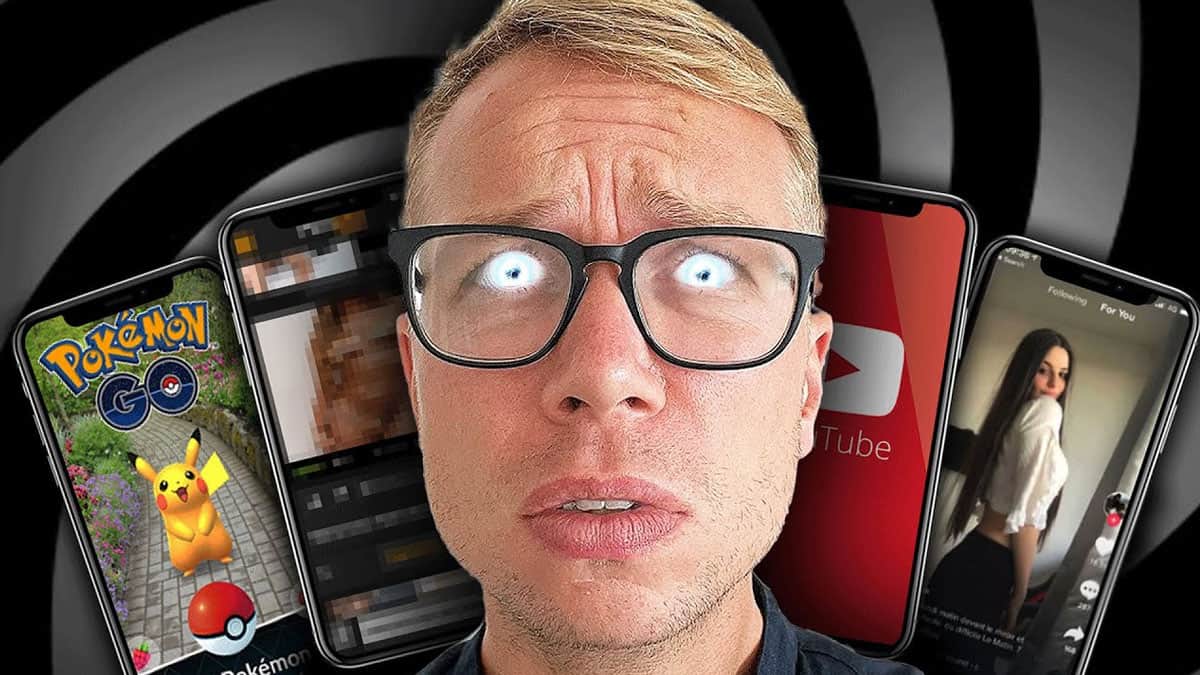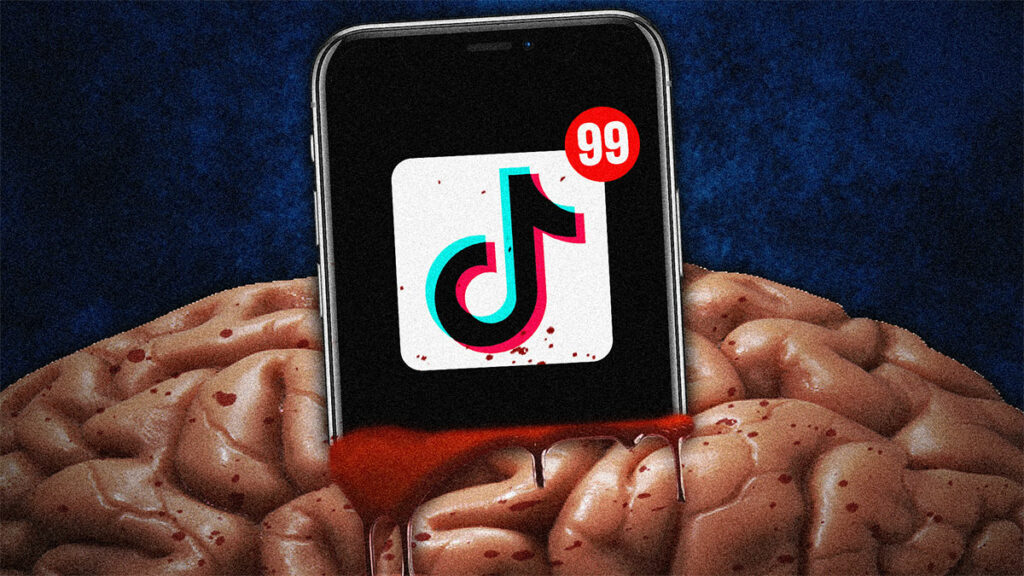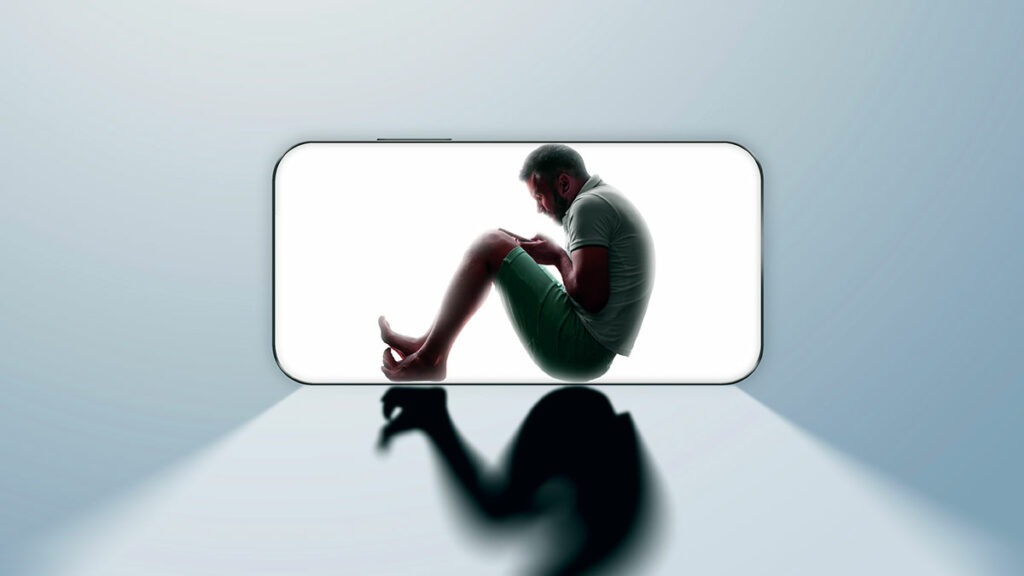
Phone Addiction: Causes, Symptoms, Treatment
Are you controlled by your smartphone? Is it the first thing you reach for in the morning and the last thing you check at night? Maybe you have healthy phone habits, but you’re worried that a loved one might be addicted to their device.
Having supported hundreds of people with digital and gaming addiction, we know the warning signs. In this article, we share tips on how to recognize phone addiction and ways to break it.
What is phone addiction?
Have you noticed that your phone doesn’t seem like a separate device anymore, but an extension of your arm? If you lost it, would you feel as though you had lost a piece of yourself? If this sounds familiar, you could be addicted to your phone, and it can ruin your life.
Compulsive phone use is a relatively recent type of addiction, so it’s not yet officially recognized in the Diagnostic and Statistical Manual of Mental Disorders (DSM) from the American Psychiatric Association. However, it’s widely acknowledged by medical professionals as a behavioral addiction.
In fact, cell phone addiction has been compared to gambling disorder, which is included in the DSM-5 and described as follows: ‘Adults and adolescents with gambling disorder have trouble controlling their gambling. They will continue even when it causes significant problems.’ It’s also important to note gaming disorder is an officially recognized mental health condition by the WHO as well.
Problems from excessive phone use
At Game Quitters, we have seen the harm caused by phone addiction. Here are some of the problems people seeking our support have told us about:
- Sleep issues, especially if they wake in the night to check their phone.
- Poor concentration at school, university or work, as they feel the constant pull of their phone when doing other tasks.
- Mental health conditions including stress, anxiety, depression.
- Insecurity – the fear of missing out (FOMO) if not constantly checking their phone.
- Relationship conflict as time spent with friends and family is squeezed because of excessive phone use.
- Poor school grades or job performance due to hours spent scrolling rather than working.
- ADHD phone addiction – research has found that ADHD may be a significant risk factor for developing smartphone addiction [1].
What causes phone addiction?

So, what is the root cause of phone addiction? It’s not the phone itself that’s addictive, it’s what’s inside the phone. In fact, the thing that makes smartphones so addicting can be summed up in one word: easy entertainment.
Phones are often not used for their main purpose – communication – but instead are used for comparing ourselves with others on social media, scrolling through memes and five-second TikTok videos, watching pornography, and playing games that are designed to keep us coming back and spending money. Almost all these things are on other devices, like your computer, tablet or TV, so why are you more likely to get addicted to your phone? It’s because of the easy access and cheap dopamine.
Your phone is almost always with you so whenever you crave a particular activity, for example, socializing, you can just get your phone out of your pocket, open Discord and enter this highly stimulating virtual world that will not only satisfy your cravings but will over satisfy you. The easy access nature of your phone, combined with the entertainment you get from engaging with it – and the uncomfortable feelings it lets you escape from – is a recipe for crippling addiction.
Phone addiction statistics
The number of worldwide smartphone users is estimated to be 6.8 billion in 2023 1 1. https://annals-general-psychiatry.biomedcentral.com/articles/10.1186/s12991-019-0224-8 × . But how many people are addicted to their phones? Let’s look at phone habits in the US to gauge the scale of the problem there 2 2. https://www.oberlo.com/statistics/how-many-people-have-smartphones × :
- 57% of Americans think they’re addicted to their cell phones.
- 89% check their phone within 10 minutes of waking up.
- 75% are uncomfortable leaving their phone at home.
- 75% look at a notification within five minutes of receiving it.
- 75% use their smartphone on the toilet.
- 47% feel anxious if their battery goes below 20%.
- 27% check their phone when driving.
What are the symptoms of phone addiction?

A frequent topic of discussion on our technology addiction parent support group is the difference between normal and excessive phone use. People often ask, “How many hours on my phone is addiction?”
There is no specific amount of screentime that indicates you may have a problem, it’s usually a combination of factors. Let’s look at some warning signs and symptoms of smartphone addiction:
- Lying about or hiding your cell phone usage
- Waking up at night to check your phone
- Trying to cut down your phone use without success
- Losing track of time when on your phone
- Feeling an intense urge to check your phone when you receive a notification
- Getting angry or irritated if your phone time is disturbed
- Struggling to focus in school, university or at work
- Having to spend more and more time on your phone to get the same positive feelings
- Feeling restless or uncomfortable if you forget your cell phone or have no service
- Neglecting hobbies and activities you used to enjoy
- Looking at your phone while eating, driving or doing other activities that require attention and concentration
- Unable to sit for 10 minutes without becoming bored and craving your phone
- Others expressing concern about your phone use
- Ignoring friends and family to spend time on your phone
- Using your phone to block out feelings such as anxiety, stress or depression
- Constantly checking your phone due to fear of missing out.
Phone addiction test
If you would like to see for yourself if you might have a phone addiction, then take our phone addiction test.
It will ask you a set of nine questions to determine how you know if you are addicted to your phone.
If you or a loved one, are experiencing at least two of these phone addiction symptoms, there are ways to overcome it. Read on to discover our step-by-step guide on how to break your smartphone addiction.
How to break your smartphone addiction
If you’ve ever asked yourself; “How do I stop my phone addiction?” here are four steps to help you break free and take back control.
1. Track your phone usage
As mentioned above, the most addicting elements of smartphones are social media, pornography, mobile games and other forms of entertainment.
However, different people spend their time on different things, so you need to work out your biggest time waster to understand what is most addictive about your phone. Sometimes, it might not be obvious, because phone use often happens almost unconsciously which can make it difficult to remember what you’ve consumed. That’s why we recommend installing an app that tracks your phone usage. For Android, you can use the ‘StayFree’ app, and for iOS, go into your settings and tap ‘screen time’.
2. Use your phone mindfully
Once you’ve worked out what you waste time on, the next step is to use your phone mindfully. Something that can help is to only use your phone as a tool. So, communication and connection should be the main reasons to pick up your smartphone – not for entertainment:
- Can’t find a specific place? Use your maps app.
- Can’t find your friend? Call or text them.
- Don’t know a specific piece of information? Go on the internet and search for it.
By using your phone as a tool, you no longer train your brain to grab the phone because you’re bored but when it’s really needed. You’ll notice how much your phone use will be reduced if you’re always thinking “Am I using this as a tool or as an entertainment device?”
3. Leave your phone out of reach
As we’ve already discussed, easy access can be a negative thing, especially if you’re addicted to your phone. That’s why you should begin separating yourself from your phone physically.
When you leave the house and know you won’t be needing your phone as a tool, then why take it? Why have your phone with you when you’re going to the bathroom? Do you need to walk around the house with your phone in your pocket or can you leave it in one place and use it when needed? Build up the time you leave your phone out of reach because the more accessible it is, the less likely you are to break your phone addiction and become free.
4. Find replacement activities
Distract yourself from constant scrolling by replacing your phone use with other activities. If you’re bored and lonely, it can be difficult to resist to urge to grab your smartphone. But, when you’re busy doing something else, it’s much easier to forget your phone. Our hobby tool has over 60 ideas and these screen-free activities are bound to inspire you.
If you’re ready to break your phone addiction the five stages of changing healthy habits can also help kickstart your recovery journey.
Do you need phone addiction help?

If you or a loved one have tried to cut back on your phone use without success, you may not know where to turn. You’re not alone, especially if you’re dealing with teen phone addiction.
At Game Quitters, we’re often approached by people who need support for digital addiction but are struggling because they can’t simply stop using a smartphone – they’re an integral part of modern life. That’s why our specialist coaching programs are so popular. You’ll discover how to build an intentional relationship with technology so you’re in control.
